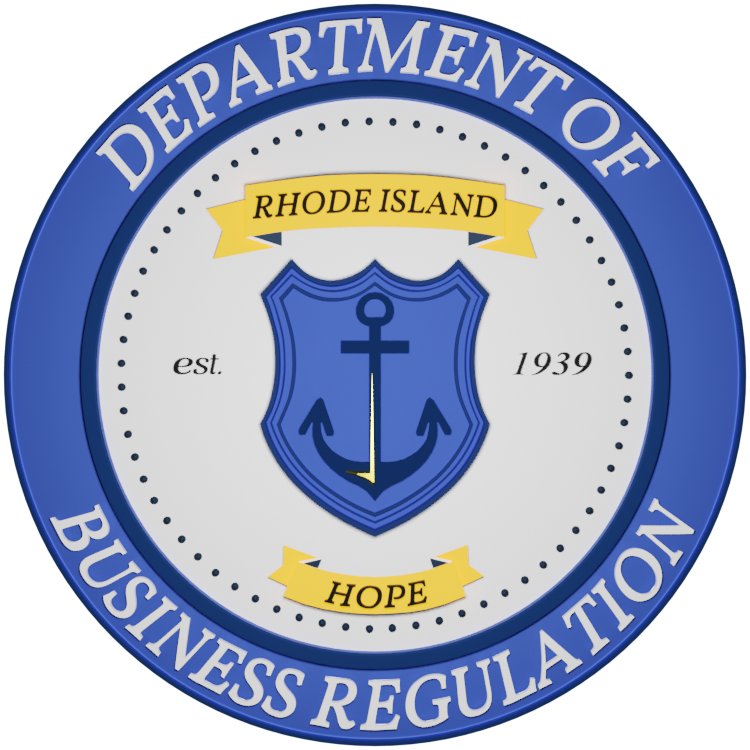Consumers - File a Complaint
Which Institutions are Regulated by the RI Division of Banking?
The Rhode Island Division of Banking regulates the following institutions:
- Financial institutions chartered in RI
- Credit unions chartered in RI
- Sellers of checks, check cashers, money transmitters, licensed loan brokers, licensed small loan lenders, and licensed lenders that perform operations in RI
Institutions that are NOT Regulated by the RI Division of Banking:
Typically, the following types of institutions are regulated by the respective listed agencies:
- If your bank has National, National Association, or N.A. in its name then you can find out more information by contacting the Office of the Comptroller of the Currency (OCC):
- OCC Website
- OCC Number: (800) 613-6743
- If your bank or savings association has Federal, FSB, or FA in their name then you can find out more information by contacting the Federal Reserve, Federal Deposit Insurance Corporation (FDIC), or Consumer Finance Protection Bureau (CFPB):
- Federal Reserve Website
- Federal Reserve Number: (888) 851-1920
- FDIC Website
- FDIC Number: (877) 275-3342
- CFPB Website
- CFPB Number: (855) 411-2372
- If your credit union has Federal in its name then you should contact the National Credit Union Administration (NCUA):
- NCUA Website
- NCUA Number: (800) 755-1030
Filing a Complaint with the RI Division of Banking
When Should I File a Complaint?
Before filing a complaint with the Division, consumers should make an attempt to resolve the dispute themselves. We have found that complaints can normally be resolved if the consumer contacts the company directly. If you have not already done so, please contact the office manager and attempt to resolve the problem. If direct contact is unsuccessful, or if you're dissatisfied with the results, please fill out the appropriate complaint form and send it to our office. Your complaint will be promptly acknowledged, and you will be advised of any action we take. The Division cannot act on complaints unless the complaint is made in writing.
Please be aware that we are not authorized to pursue redress on behalf of individual complainants. While some complaints can be easily resolved by Division intervention, consumers should understand that the Division cannot serve as a substitute for a court of law. In many instances, particularly where violations of laws under the Division's jurisdiction are not evident, it may be necessary for consumers to pursue complaints in civil court. The Division cannot give you legal advice, nor can we recommend an attorney to you.
How do I File my Complaint?
All complaints will be handled in the order in which they are received. All written complaints should include the name, address and telephone number of the person making the complaint; the name, address and telephone number of the person or company that is the subject of the complaint; and a narrative description of the nature of the complaint. Copies of documents relevant to the complaint should also be forwarded to the Division.
To file a complaint with the Division, please fill out a complaint form and return it to our office at the following address:
State of Rhode Island Department of Business Regulation
Division of Banking
1511 Pontiac Avenue, Bldg 68-1
Cranston, RI 02920
